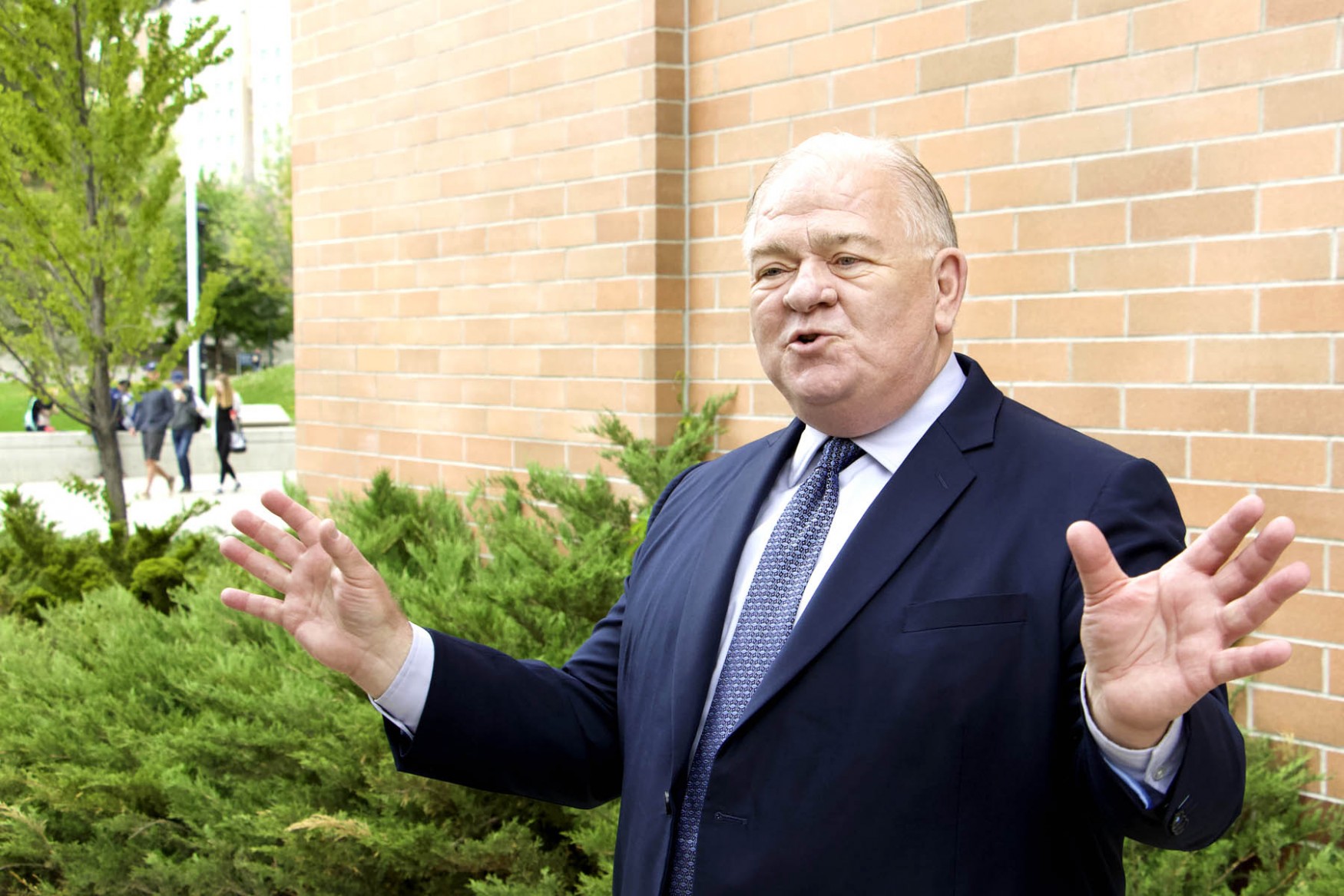As climate change becomes increasingly evident and more than three billion people live on less than $2.50 a day, the call is louder than ever for the corporate world to step up and be a part of the solution. By using today’s technologies, global interconnectedness and other tools, business can still turn a profit while bettering the condition of the planet and all its residents.
For insight into how TRU’s School of Business and Economics, its students, alumni and faculty can make the world a more sustainable place, we turned to the school’s dean Michael Henry.
NEWSROOM—TRU’s School of Business and Economics (SoBE) has two relatively new master’s degrees that focus on sustainability. How does the Master in Environmental Economics and Management and the Master of Science in Environmental Economics and Management address sustainability?
MICHAEL HENRY—AT THE CORE OF EACH is a Master of Business Administration. Students look not at whether we should or shouldn’t take an action, but what are the trade-offs. They could be looking at anything from extracting resources to having tourism destinations.
By balancing the impacts along with the short-term and long-term costs, students can make informed decisions on the directions to take.
NEWSROOM—What other program with an emphasis on sustainability would you like to highlight?
MH—I’M EXCITED ABOUT OUR MAJOR in supply chain management within our Bachelor of Business Administration. Our program is unique because we examine the green, sustainable supply chain.
Think about the carbon footprint of this: We bring a product from overseas, then modify it in the Lower Mainland, and then have it sit in a heated warehouse for four months before shipping it in small quantities to Kamloops in half-empty railcars. That’s a simplistic example, but in a sophisticated way, our professors research and students learn how to make the supply chain of things—things we need, eat, consume and live with—work in a way that minimizes the carbon and ecological footprints.
The green supply chain is about sustainability and it’s about an ethic. That’s what we want to teach.

NEWSROOM—Why are students wanting sustainability in their coursework?
MH—STUDENTS ARE MUCH MORE INQUISITIVE, much more challenging than when I was as a student, which I think is a good thing.
TRU’s students are aware of what the issues are and they want to talk about them. They want to talk about globalization, about the oceans, about sustainability and the fires. What they write about in their papers and talk about is another way they push us to grapple with the issues.
A university should be educating and talking about ideas. We should be asking: What can we do about this? How can we move this forward?
NEWSROOM—TRU recently received the highest designation possible—platinum—in the globally recognized Association for the Advancement of Sustainability in Higher Education STARS (Sustainability Tracking, Assessment and Reporting System) report. Why is the platinum designation important for TRU?
MICHAEL HENRY—OUR UNIVERSITY IS A COMMUNITY and we’ve been able to move forward on STARS because we have the support of staff, faculty, students, administration, stakeholders and the bargaining units. When we have everyone onside, nothing can stop us.
You don’t get this kind of recognition for something you did last month; it’s because you’ve been working on things for years. We got it and many universities in Canada didn’t, or won’t. We’ve made a mark and that is something TRU should be proud of. I’m proud to be part of it.
This recognition increases the profile of our school, and in particular, things like green supply chain and environmental economics.
Whether it’s our recruiters, or me meeting with alumni and potential students, we can say, ‘This is not just what we are offering, this is what our university lives.’ If you’re a person who is really passionate about this, where else would you go, except for a university that walks the talk.
TRU NEWSROOM—How is the worldwide movement toward sustainability an opportunity for the School of Business and Economics?
MICHAEL HENRY—IT PUSHES US TO SAY, “This is part of everything we do.”
When you reflect on it, there is nothing we do in business that doesn’t impact sustainability. If we’re going to impact sustainability, we have to infuse sustainability throughout our curriculum, and we’re doing that every day.
After the financial crisis of 2008-10, there’s a real reflection in business about the ethics that underscored what we do and the values we bring to business. When I talk to business leaders, we talk about the fact that we’re in business to make money, but we’re also in business to do good things with our business, and to do good things with the money that we make.
TRU’s embrace of sustainability comes from the same place. It’s grounded in a set of values that are about who we are, what our responsibility is to ourselves, to our world generally and to future generations.
International students are bringing their perspectives and lived experiences here and while these are diverse, we all share a set of common values.
What we’re giving students is the opportunity to learn how to work together and how to share their different experiences. When we do that, we’re going to get better solutions when they get into the workplace.

